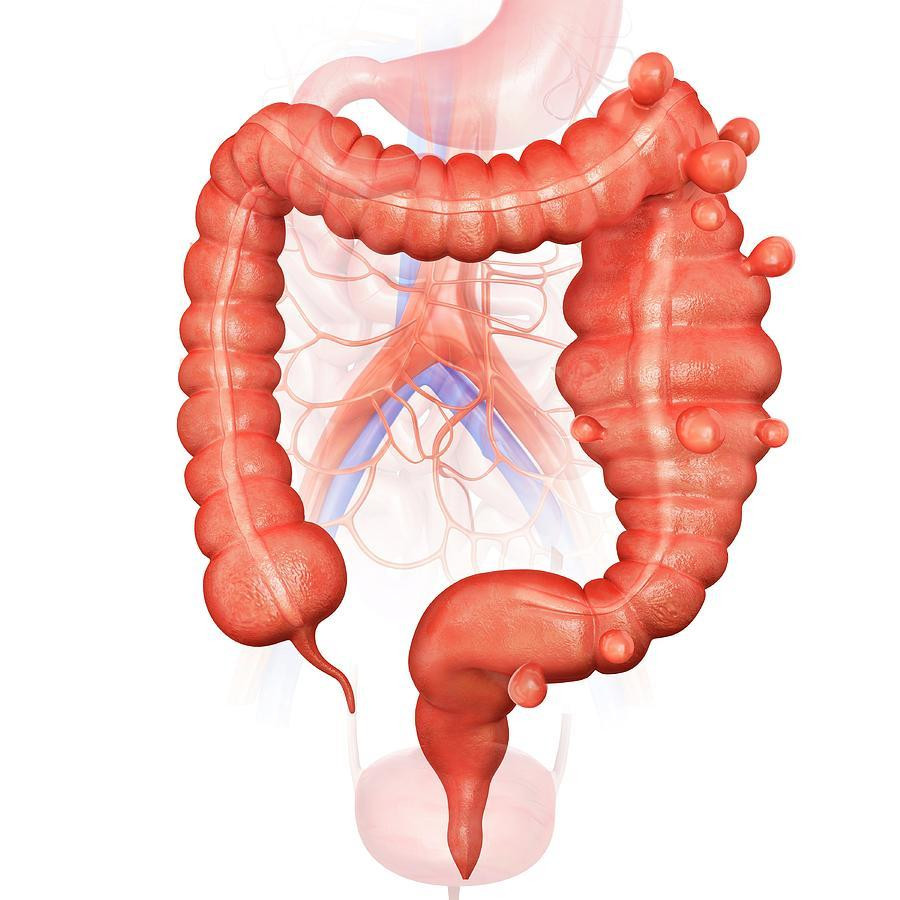A condition where small, inflamed pouches (diverticula) form in the walls of the intestine, typically the large intestine:
- Causes: Diverticulitis often occurs when these pouches in the intestine become inflamed or infected. This can happen when the pouches trap bits of stool or bacteria, leading to irritation and inflammation.
- Risk Factors: Several factors increase the risk of developing diverticulitis:
- Age: It’s more common in individuals over 50, likely due to weakening of the intestinal walls over time.
- Genetics: There are genetic factors, such as specific genes like HGAP15 and FAM155A, that can predispose individuals to diverticulitis.
- Diet: A low-fiber diet is a significant risk factor. Diets high in processed foods and low in fiber can contribute to constipation and increased pressure in the colon, which may lead to the formation of diverticula.
- Lifestyle: Lack of exercise and being overweight (BMI of 28 or higher) can contribute to the development of diverticulitis.
- Smoking: Smoking and vaping can increase the risk of inflammatory conditions in the intestines, including diverticulitis.
- Ethnicity: Caucasians seem to have a higher risk compared to other ethnic groups, possibly due to dietary and lifestyle factors more common in Western societies.
- Chronic Inflammation: Conditions that lead to chronic inflammation in the intestines, such as autoimmune disorders or chronic use of certain medications, can also increase the risk.
- Symptoms: Symptoms of diverticulitis can include abdominal pain (often on the lower left side), bloating, cramping, changes in bowel habits (constipation or diarrhea), and sometimes fever or bleeding from the rectum.
- Management: Treatment often involves dietary changes to increase fiber intake, which helps regulate bowel movements and prevent constipation. In severe cases, antibiotics may be prescribed to treat infections. Surgery may be needed in cases of complications like abscesses or bowel perforation.
- Prevention: To reduce the risk of diverticulitis, maintaining a diet rich in fiber, staying hydrated, exercising regularly, avoiding smoking, and managing chronic conditions effectively are recommended.
Managing diverticulitis often involves lifestyle changes to support intestinal health and reduce inflammation, alongside medical treatments when necessary. Regular monitoring and adjustments to diet and lifestyle can help mitigate the risk and manage symptoms effectively.
